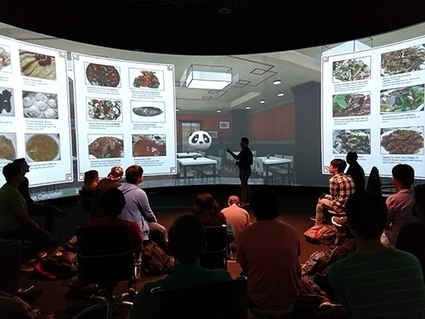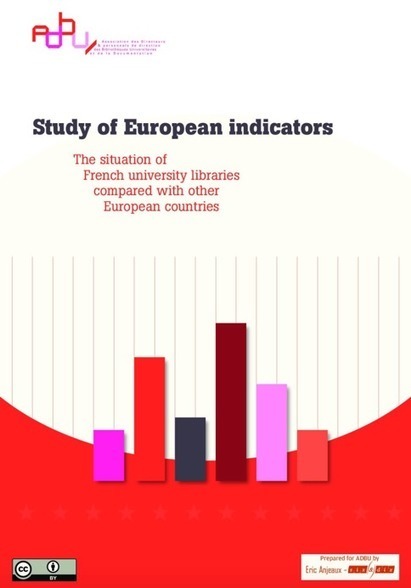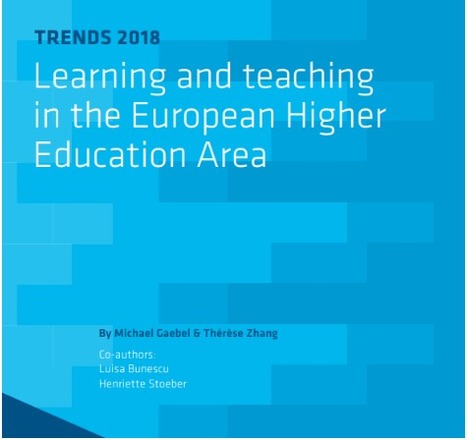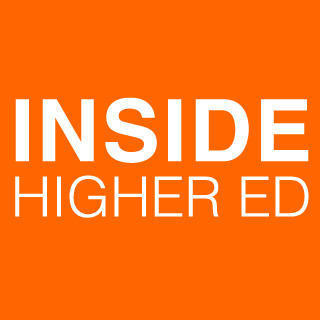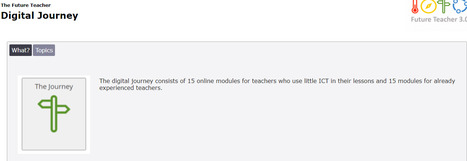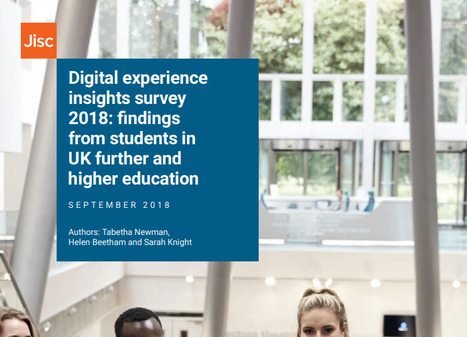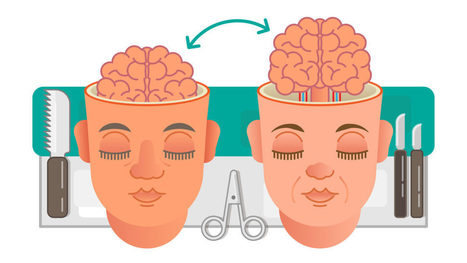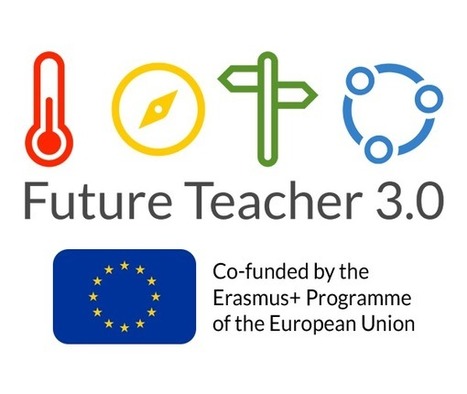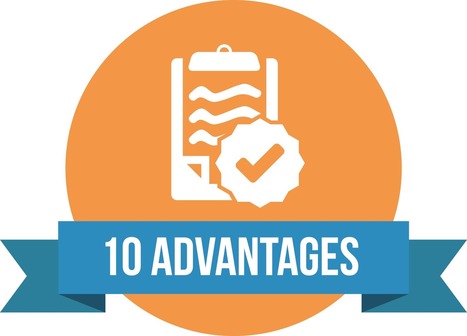Fifty years after the first computer network was connected, most experts say digital life will mostly change humans’ existence for the better over the next 50 years. However, they warn this will happen only if people embrace reforms allowing better cooperation, security, basic rights and economic fairness
Get Started for FREE
Sign up with Facebook Sign up with X
I don't have a Facebook or a X account

 Your new post is loading... Your new post is loading...
 Your new post is loading... Your new post is loading...
Current selected tag: '2018'. Clear
A growing number of academics are experimenting with new technologies powered by artificial intelligence, but many of the technologies aren't yet ready for prime time.
Ofcom (the UK media and communications watchdog) have published (at end of January 2019) the Children and parents: media use and attitudes report 2018. As usual, it is based on robust research: 1,430 in-home interviews with parents of 5-15s and children aged 8-15 were conducted, along with 630 interviews with parents of children aged 3-4: undertaken in April-June 2018. It includes parents views about their children's use of media and devices.
In 2017 SCONUL shared statistical return data with ADBU – the French association of directors and senior staff in university and research libraries. ADBU undertook a European comparative study on key performance indicators in academic libraries between 2013-2016 in thirteen European countries. The study explored: potential library users (staff and students); Library use (gate counts, loans, downloads and information literacy teaching); Library space (meterage, study spaces and computers); Library staff; Electronic resources; and Finance (income and expenditure).
From
eua
by Michael Gaebel and Thérèse Zhang
Trends 2018 examines how learning and teaching at European higher education institutions evolves in the context of changing demands, technological and societal development, and European- and national-level policies and reforms. This EUA flagship report gathers data from more than 300 higher education institutions in 48 European countries.
The ninth UCISA Survey of Technology Enhanced Learning (TEL) for higher education Report has been published. The Report offers a longitudinal perspective of TEL developments across the UK higher education sector, focusing on the current provision within universities and other higher education providers and the emerging and planned patterns of learning technology usage. This year’s Report draws on data going back to 2001 in its longitudinal analysis of TEL trends. In this blog post, we will explore some of the key findings from this year’s Survey, updating the picture that was reported on in 2016 (see corresponding blog post).
Our survey of more than 37,000 students (14,292 from further education) shows more than two thirds of further education (FE) students are turning to each other and their lecturers for technical support, overlooking online help for their digital queries
Common Sense Media’s latest report, co-authored with USC Annenberg, into the ‘new normal’ of media use in UK families reveals that while parents report a sense of anxiety and some conflict with their teens around media, most believe that digital technologies have actually reduced tensions. Despite anxiety, both parents and teens are largely optimistic about the benefits their devices bring, writes Sonia Livingstone. Sonia is Professor of Social Psychology in the Department of Media and Communications at the London School of Economics and Political Science.
The world’s first national learning analytics service has been launched for the UK’s further and higher education sectors.
Twitter has made a surprise change to how it shows tweets to its users, following a viral thread earlier today that discussed ways to reverse the platform’s algorithmic timeline. Now, when you uncheck the settings box reading “Show the best tweets first,” Twitter will completely revert your timeline to a non-algorithmic, reverse-chronological order, which is how Twitter was originally designed and operated for years until the company introduced a default algorithmic model in early 2016.
A new search engine that aims to connect nonacademics with open-access research will be launched this fall. Get the Research will connect the public with 20 million open-access scholarly articles. The site will be built by Impactstory -- the nonprofit behind browser extension tool Unpaywall -- in conjunction with the Internet Archive and the British Library. Funded by a $850,000 grant from Arcadia, the search engine will be a place where “we can tell lay readers, ‘here’s where you can read free, trustworthy research about anything,’” said Jason Priem, Impactstory's co-founder. He added that artificial intelligence techniques will be used to annotate and summarize materials, making them easier to understand.
The digital journey consists of 15 online modules for teachers who use little ICT in their lessons and 15 modules for already experienced teachers.
Until recently, Facebook had dominated the social media landscape among America’s youth – but it is no longer the most popular online platform among teens, according to a new Pew Research Center survey. Today, roughly half (51%) of U.S. teens ages 13 to 17 say they use Facebook, notably lower than the shares who use YouTube, Instagram or Snapchat. |
This came out 6 months ago, but Esther Grassian just highlighted it - there is a useful introduction to Online Educational Resources (OERs) (with lots of links etc.) in the December 2018 issue of Library Instruction Round Table News: Tech Talk: Online Educational Resources by Billie Peterson-Lugo (on pages 5, 9-14)..
Key messages: Prepare students for digital learning
Authors: Tabetha Newman, Helen Beetham and Sarah Knight
This year, MoodleNet has gone from idea to code. In fact, we’ll be launching a Minimum Viable Product in January 2019 to gather feedback from around a hundred testers. That process will start in the New Year. In a world of agile development, where speed-to-market is everything, why has it taken a year for MoodleNet to emerge? Hopefully, this post (and its many links) will help explain some of that. We agree with Abraham Lincoln’s philosophy when he said: “Give me six hours to chop down a tree and I will spend the first four sharpening the axe.” MoodleNet is a new open social media platform for educators, focused on professional development and open content. It aims to sustainably empower communities of educators to share and learn from each other to improve the...
Researchers studied students’ brains as they learned and took another look at the marshmallow test, learning styles, and growth mindset.
Education research continues to remind us of the powerful impact teachers have on children. This impact is overwhelmingly positive—the studies we highlight here demonstrate specific ways in which teachers can or already do help students feel a sense of belonging in school and make gains in learning. There are areas for improvement, though: Researchers have shown that different rates of suspensions and expulsions for black and white boys have more to do with adult perceptions of those kids than with their behaviors.
Today, Research England publishes three documents to help institutions prepare for the consultation later this month on the Knowledge Exchange Framework (KEF). One of those documents summarises the 106 responses to the December 2017 call for evidence, about what data is relevant to knowledge exchange and how it should be used appropriately. In particular, it looks at how institutions can be compared in a “fair and meaningful” way. The majority of responses are read as having a “cautiously positive tone, essentially this could be useful if done well”.
UCISA (the "member-led professional body for digital practitioners within education" in the UK) have produced their survey-based annual review of Technology Enhanced Learning in UK higher education. Although I think there is a caveat (see below) it is a useful document which presents a perspective on TEL development.
The session reports on two studies based around Jisc’s investigation into the Next Generation of Digital Learning Environments. The first study asked questions about the technology in use, and emergent technologies that impact on learning and teaching. This involved framing the question as a “what if” and a “what would” around next generation digital learning technologies. This methodology relied on passive recruitment, with participants contributing a range of submissions from as short as a tweet to extensive papers.
I am delighted to share with you a summary of the findings from the Jisc digital experience insights survey 2018. This report provides a unique national picture of how students are using
This white paper provides an overview of the growing field of instructional design in higher education, from why the field is growing to how designers are functioning in their role. It explores why there is a growing demand for designers, who is filling these roles, what the responsibilities of designers are, and how instructional designers are addressing the challenges they face.
The 2018 OpenupEd Trend Report on MOOCs This is a report by various experts on current trends on Massive Open Online Courses (MOOCs) especially focussing on Europe. MOOCs are offered online only, providing massive and open learning opportunities for all, promoting engagement in the knowledge society. Investments in and the uptake of MOOCs are more and more significant worldwide. MOOCs, and open education in general, are providing new learning opportunities |





